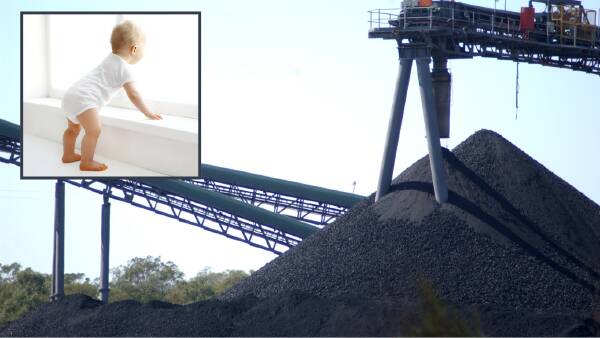
BREAKING: New analysis reveals a direct connection between fluctuating coal prices and birth rates in the Hunter Region. A recent report from KPMG shows that the sharp decline in Australian coal export prices between 2013 and 2014 correlated with a significant drop in births in Newcastle and surrounding areas.
The data indicates that as coal prices surged in 2017, birth rates rebounded dramatically in 2018. However, as prices eased in subsequent years, a corresponding decline in births followed—highlighting the region’s economic dependency on the mining sector.
Terry Rawnsley, an urban economist at KPMG, stated, “When commodity prices rise, this leads to a ripple effect across the entire local economy, leading to more money in people’s pockets.” He emphasized that this economic prosperity is what drives families to feel secure enough to expand their households.
In a surprising twist, Robin Williams, president of the Mining and Energy Union Northern mining and NSW energy district, noted that while economic security influences family planning, he hasn’t encountered couples directly linking coal prices to their decisions on having children. “Secure, well-paid jobs—like those in mining—support individuals to make major life decisions,” he explained.
However, the traditional link between mining and birth rates appears to be breaking in 2023, as the country faces broader inflationary pressures. Despite a spike in coal prices that year, birth rates did not see a corresponding increase, indicating that families are delaying major life decisions due to economic uncertainty.
The Hunter Region is not solely reliant on mining anymore. In 2024-25, the fastest-growing sectors include healthcare, which is expected to add 3,500 jobs, followed by other services with 2,500 jobs, and construction with 2,000 jobs. These emerging sectors suggest a diversification of the local economy, reducing its dependency on commodity prices.
Rawnsley concluded, “While mining remains the cornerstone of the local economy, rapidly expanding healthcare, construction, and professional services sectors suggest that the region does not need to rely as heavily on commodity prices. This is good for overall economic resilience and long-term sustained prosperity.”
As the Hunter Region adapts to these changing dynamics, the implications for family planning and economic stability will continue to evolve. Residents and policymakers alike are urged to monitor these developments closely as they shape the future of this vital community.
Stay tuned for more updates on this developing story.







